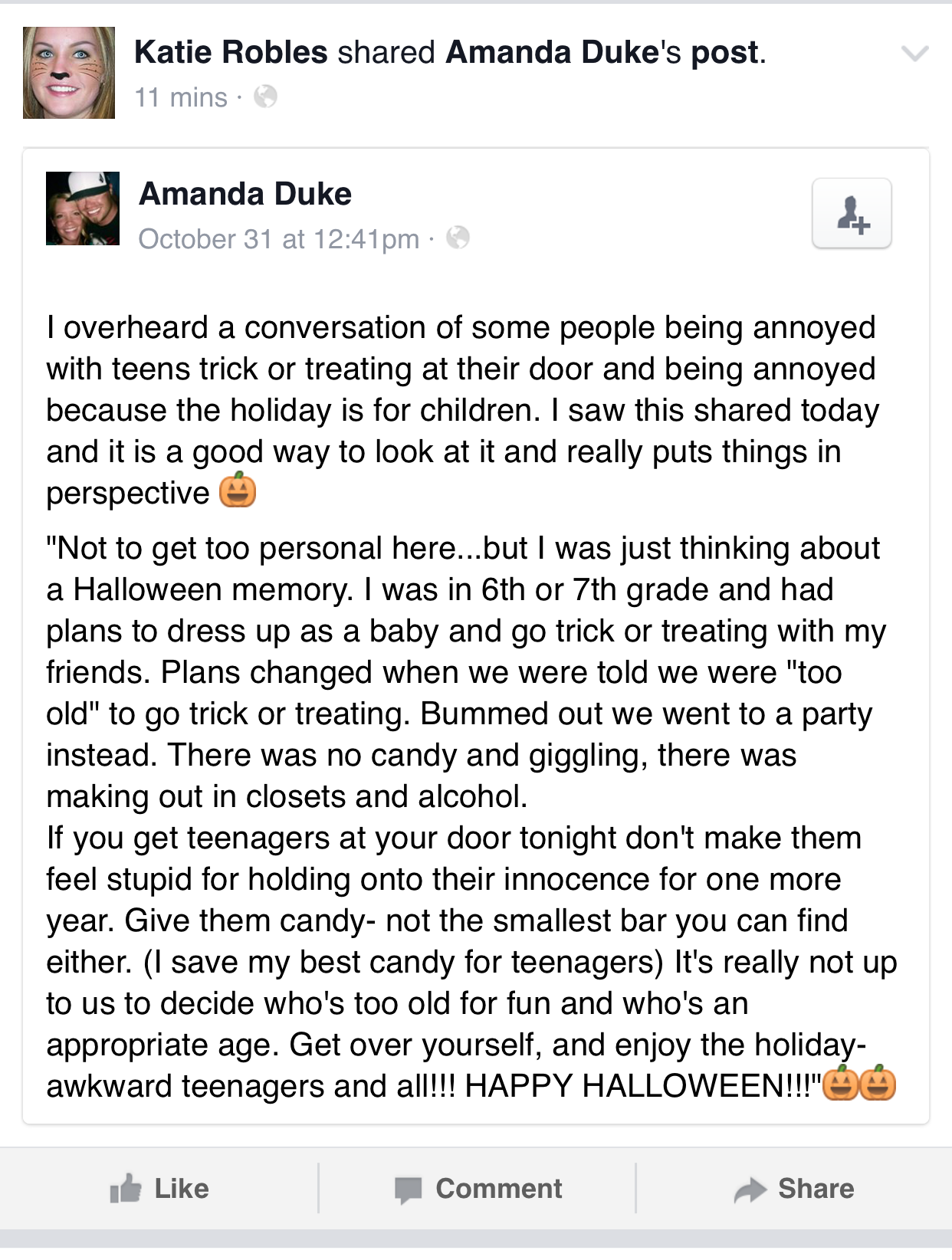After a couple posts dealing with a serious topic, I wanted to switch gears a little bit. By no means am I saying that what I am about to write about (trick-or-treating) is a trivial topic, I am just saying it doesn’t pull the weight of identity theft.
Last night my sister sent me the below screenshot of someone’s Facebook post. I know none of these people, not the poster nor the sharer. In fact, it looks like this post might be influenced by many more people I don’t know as “Amanda” stated that the bulk of her argument came from another Facebook status that she saw.
The argument is simple enough. Teenagers should not be shamed for trick-or-treating. The original poster recalled a childhood memory from the sixth or seventh grade. She shared that when her planned night of going door-to-door and saying those three magic words was chastised by others, she found herself attending a party instead. The people at this gathering weren’t just watching scary movies and the apple cider had a little kick to it.
This scenario presents a straight forward moral principle. How could any sensible person feel good about contributing to the attendance of a 13-year-old kid at a party because they discouraged a boy or girl from going trick-or-treating? I agree with this Facebook user. Much in the same way as it is not our decision to tell a child when he/she should stop believing in Santa Claus, it also isn’t our call to tell them when to stop trick-or-treating.
However, I do disagree with the second portion of the argument. This user believes that the premium candy should be reserved for the “senior” trick-or-treaters. I don’t go against this thinking solely because it was a longstanding tradition in our house to reward toddlers with a couple candy bars and older kids with a piece of bubble gum. Rather, I am strictly opposed to it because I don’t think it is our job to incentivize teenagers to continue to trick-or-treat. Don’t get me wrong, I don’t agree with telling someone she is too old to go door-to-door on Halloween, I just don’t think it is our duty to take extra measures to keep the high school sophomore out on the neighborhood streets until he graduates.
In most cases it is a good thing when someone graduates from trick-or-treating. It shows the person is maturing, and, most of the time, it is a decision made solely by the former trick-or-treater himself. I think we do a strong disservice to the development of our youth by slowing this process down. But like I have said, if it is not time yet for the person to move on from the spooky neighborhood streets, so be it.
Don’t put down a teenager for trick-or-treating. At that age, they don’t need added humiliation and scolding. When they approach your door greet them warmly and treat them with respect. Just please don’t give them the best candy in your bowl. Don’t Blink.

